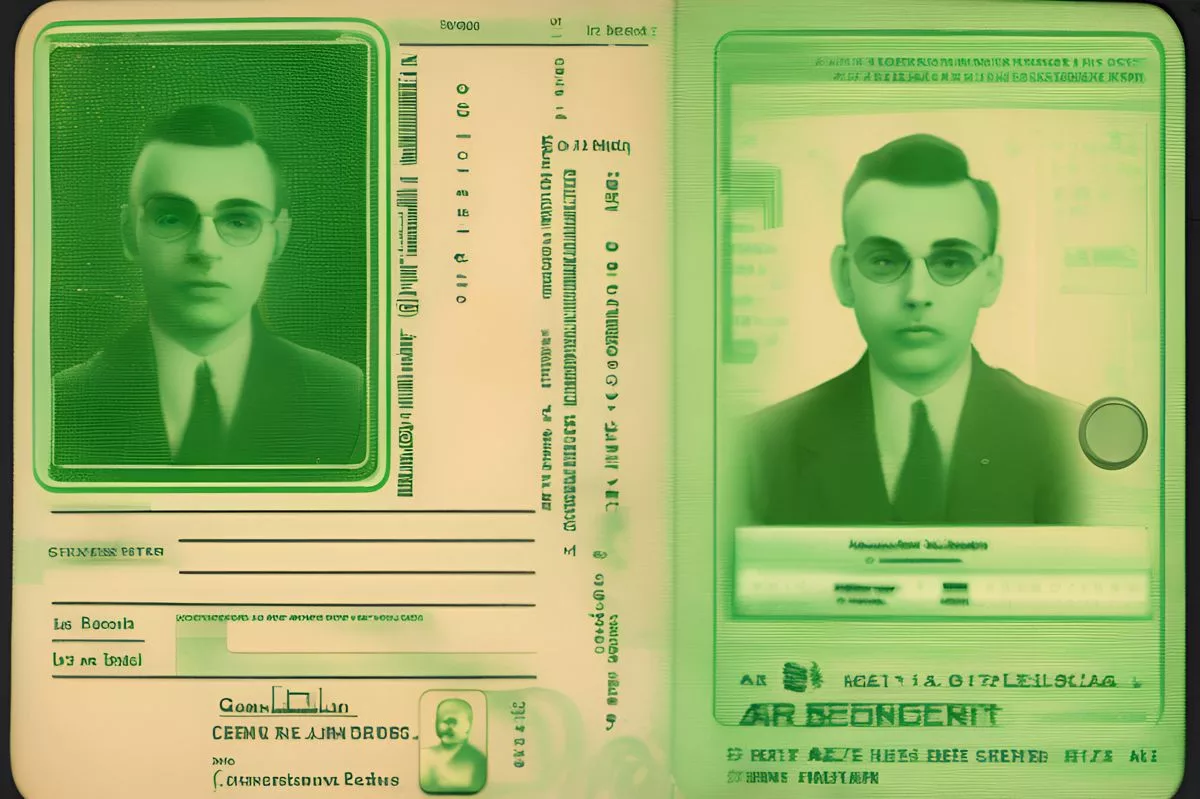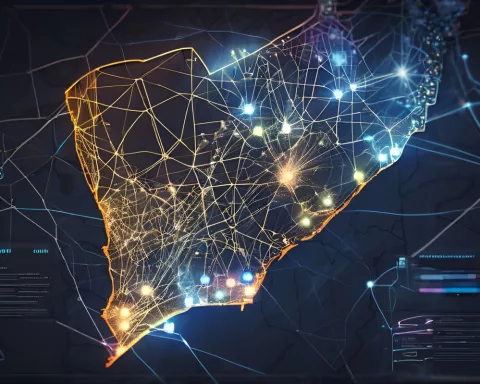Naturalized citizens in South Africa face tough challenges, like outdated ID systems and complicated bureaucracies, making it hard for them to access essential services. Even though they have the same rights as those born in the country, many struggle to get modern IDs, often feeling like second-class citizens. Recently, the government, led by Minister Schreiber, has started working on a plan to fix this by introducing smart ID cards and digital services for all citizens. This change not only aims to make life easier but also hopes to create a stronger sense of belonging for naturalized citizens in South Africa’s diverse society.
What challenges do naturalized citizens face in South Africa?
Naturalized citizens in South Africa encounter significant challenges, including outdated identification methods, bureaucratic barriers, and limited access to digital services. Despite having constitutional rights, they often struggle with obtaining smart ID cards and navigating the Home Affairs system, highlighting persistent systemic inequalities.
Historical Discrimination and Identification Challenges
Naturalized citizens in South Africa have faced a unique and often overlooked form of discrimination for decades. Despite being granted the same constitutional rights as citizens by birth, these individuals encounter numerous obstacles in obtaining modern identification methods. The journey to acquire a smart ID card or access the Home Affairs eHome online portal is fraught with difficulties. This situation, though not explicitly outlined in any specific legislation, underscores a persistent inequality embedded within the system.
The root of this discrimination lies in the deeply ingrained bureaucratic practices that have long characterized South Africa’s administrative processes. Reliance on outdated paper-based systems, exemplified by the green ID booklet—commonly referred to as the ‘green mamba’—has inadvertently created a hierarchical divide among citizens. For those who have gone through the rigorous naturalization process, being confined to this antiquated form of identification deprives them of the conveniences and efficiencies provided by digital advancements.
South Africa’s post-apartheid era, characterized by its efforts to dismantle institutionalized racial discrimination, paradoxically still allows a system that fosters inequality among its citizens. While this issue has remained in the background for many years, recent developments indicate a possible shift in approach. The appointment of Minister Leon Schreiber under the Government of National Unity marks a potential turning point, promising a more inclusive digital modernization strategy.
Pioneering Digital Transformation
Minister Schreiber’s leadership could redefine the relationship between naturalized citizens and the state. His vision to digitize the Home Affairs experience, mirroring the successful digital transition of the South African Revenue Service (SARS), represents a proactive step forward. By extending access to smart ID cards and online services to naturalized citizens, the government not only aligns with global digital governance trends but also acknowledges the legitimacy of these citizens’ status in a tangible manner. This initiative addresses a long-standing oversight and underscores a moral obligation to rectify systemic inequities.
The path to reform began in December 2023, with a pilot program aimed at evaluating the feasibility of issuing smart ID cards to naturalized citizens. Although modest in scale, this initiative marks a crucial phase in a broader strategy to phase out the green mamba. Since the introduction of smart IDs in 2013, the transition has been sluggish, with only around one-third of the population receiving the new cards. The challenge extends beyond technological adaptation; it requires a shift in institutional mindset towards inclusivity and efficiency.
During a recent parliamentary Q&A session, Minister Schreiber outlined plans for the second phase of the smart ID rollout, scheduled for 2025. This phase will focus intensively on integrating naturalized citizens into the digital identification framework. With approximately 700 applicants already invited to participate, this promising start reflects a government committed to addressing disparities. By fostering a system capable of stable and secure application verification, Home Affairs is setting a precedent for future reforms.
Cultural and Societal Implications
An intriguing aspect of this transformation lies in its potential cultural impact. The green mamba, while a practical document, has also become a symbol of identity for many South Africans. As the nation transitions to smart IDs, there may be nostalgia or resistance from some quarters, yet this change signifies progress toward a more unified national identity. Beyond its functionality, the digital card captures the essence of a nation embracing change while honoring its diverse heritage.
This transition could also shift societal perceptions of naturalized citizens. As barriers to full participation in civic life diminish, these individuals may experience a newfound sense of belonging. Their contributions to South Africa’s social and economic fabric might gain greater recognition, challenging the narrative that has historically framed them as perpetual outsiders. The digital era presents an opportunity to redefine citizenship in an inclusive, dynamic manner that aligns with contemporary realities.
This initiative’s broader implications echo historical movements for equality and justice. The fight for fair treatment of naturalized citizens resonates with global civil rights struggles, from the battle against apartheid to the ongoing quest for racial and social equity worldwide. Every step toward dismantling systemic discrimination attests to the enduring human spirit and the relentless pursuit of justice.
Challenges and Future Prospects
The modernization of Home Affairs could act as a catalyst for reform across other government sectors. By showcasing a successful transition to digital operations, it sets a benchmark for other departments to emulate. This momentum could herald a new era of public service—one marked by agility, responsiveness, and attentiveness to the needs of all citizens, irrespective of their origins.
The journey to full implementation, however, will not be devoid of challenges. Technical glitches, resistance to change, and the sheer scale of the undertaking pose formidable obstacles. Nonetheless, the commitment to overcoming these hurdles reflects a deeper conviction: that every citizen, regardless of their path to becoming part of the South African mosaic, deserves equal access to the rights and privileges of citizenship.
As the nation stands on the brink of this transformation, anticipation is palpable. The actions undertaken by Minister Schreiber and his team today go beyond mere administrative adjustments; they constitute foundational shifts in how South Africa perceives its identity and future. By embracing digital modernization, the nation reaffirms its commitment to equality, progress, and a shared destiny.
FAQ on Navigating Identity: Challenges for Naturalized Citizens in South Africa
What challenges do naturalized citizens face in South Africa?
Naturalized citizens in South Africa encounter significant challenges, including outdated identification methods, bureaucratic barriers, and limited access to digital services. Despite having the same constitutional rights as citizens by birth, they often struggle with obtaining smart ID cards and navigating the Home Affairs system, highlighting persistent systemic inequalities.
How does historical discrimination impact naturalized citizens?
Naturalized citizens have faced unique forms of discrimination for decades, often finding it difficult to obtain modern identification methods like smart ID cards. This ongoing issue reflects deeply ingrained bureaucratic practices that rely on outdated systems, such as the green ID booklet, which can marginalize these citizens despite their constitutional rights.
What is the government’s plan to address these challenges?
Under the leadership of Minister Leon Schreiber, the South African government is working on a digital modernization strategy aimed at providing naturalized citizens with access to smart ID cards and online services. A pilot program began in December 2023 to evaluate the feasibility of issuing smart ID cards to naturalized citizens, marking a significant step toward more inclusive identification systems.
How will the introduction of smart ID cards affect naturalized citizens?
The introduction of smart ID cards is expected to alleviate many bureaucratic barriers faced by naturalized citizens and foster a stronger sense of belonging within South Africa’s diverse society. By moving away from the outdated green ID booklet, the government aims to enhance the civic participation and recognition of naturalized citizens within the broader national identity.
What are the cultural implications of transitioning to smart IDs?
The transition from the green mamba to smart IDs signifies more than just a practical update; it represents a cultural shift toward a unified national identity. While some may resist the change, the movement toward digital identification offers an opportunity to recognize the contributions of naturalized citizens and challenge the perception of them as outsiders.
What future prospects do naturalized citizens have in South Africa?
The modernization of Home Affairs is anticipated to set a precedent for reform across other government sectors, enhancing public service delivery for all citizens. While challenges such as technical glitches and resistance to change remain, the ongoing commitment to inclusivity and equal rights offers a hopeful perspective for naturalized citizens in South Africa, affirming their place in the national mosaic.












